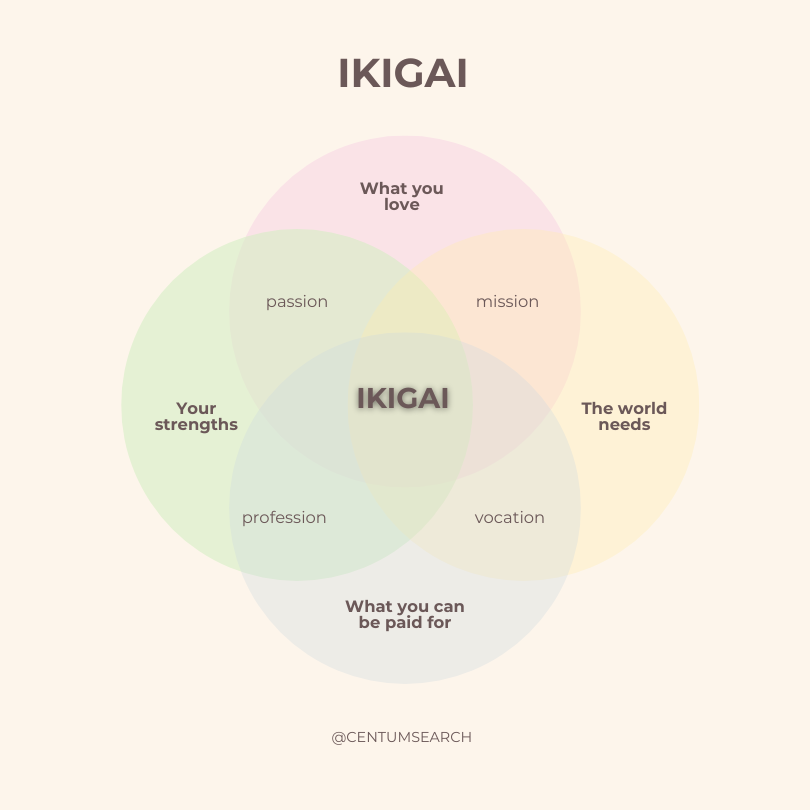10 In-Demand Skills to Level Up Your Executive Job Search
The 2024 technology job market is more competitive than ever, and this is especially true for executives. With the business world rapidly evolving due to technological advancements, market shifts, and changing consumer behaviors, executives must tailor their job-seeking strategies to stand out from their competition.

As an executive, it's essential to display a mix of advanced skills and pertinent experiences that demonstrate your capability to lead successfully in a dynamic business environment.
Here are 10 highly sought after competencies executive-level candidates should prepare for and emphasize in their job-seeking efforts this year:
1. Digital Transformation Leadership
According to McKinsey & Company, 70% of digital transformations fail, mostly due to lack of comprehensive executive leadership and support.
Highlighting successful digital transformation projects can set you apart as a leader who beats the odds. Demonstrate an understanding of how to leverage digital technologies to revolutionize business operations, enhance customer experiences, and drive company-wide innovation.
Experiences to Highlight:
- Leading significant digital transformation projects.
- Hands-on experience with emerging technologies like AI, machine learning, blockchain, and IoT.
- Proven track record of implementing digital tools that significantly improve operational efficiency and productivity.
Showcase Tip: Highlight specific digital projects you've led and the tangible business outcomes they achieved, such as increased revenue or improved customer satisfaction.
2. Data-Driven Decision Making
Forbes notes that data-driven organizations are 23 times more likely to acquire customers, 6 times as likely to retain customers, and 19 times as likely to be profitable as a result.
Illustrate your proficiency in analyzing and interpreting complex data to inform strategic decisions.
Experience to Highlight:
- Use of advanced data analytics tools and methodologies in past roles.
- Examples of key business decisions you've made based on data insights.
- Leadership in establishing or enhancing data governance and data strategy frameworks.
Showcase Tip: Provide examples of how your data-driven strategies have led to successful business outcomes or innovations.
3. Cybersecurity Acumen
According to IBM’s Cost of a Data Breach Report 2020, the average total cost of a data breach is $3.86 million, emphasizing the critical need for robust cybersecurity leadership.
Demonstrate your knowledge of cybersecurity risks and effective mitigation strategies.
Experience to Highlight:
- Oversight of cybersecurity framework development and implementation.
- Experience in managing responses to cyber incidents and breaches.
- Staying updated with the latest cybersecurity threats and prevention techniques.
Showcase Tip: Discuss specific cybersecurity challenges you've addressed and how your interventions safeguarded company assets.
4. Agile and Adaptive Leadership
According to the Project Management Institute, organizations that are highly agile and responsive to market dynamics complete more of their projects successfully than their slower-moving counterparts (75% vs. 56%).
Show your ability to adapt leadership style to rapidly changing market conditions and business needs.
Experience to Highlight:
- Successful leadership during periods of significant organizational change.
- Implementation of agile methodologies to improve business flexibility and responsiveness.
- Promotion of a culture that emphasizes continuous improvement and rapid innovation.
Showcase Tip: Share stories of how your agile leadership has navigated companies through challenging times or market disruptions.
5. Sustainability and Social Responsibility
A report by Nielsen revealed that 66% of consumers are willing to pay more for sustainable brands, which showcases the growing importance of CSR and sustainability in business strategies.
Discuss your commitment to drive sustainability and corporate social responsibility initiatives.
Experience to Highlight:
- Development and execution of sustainability strategies.
- Leadership in corporate social responsibility initiatives that have a positive community and environmental impact.
- Reporting and achievement in sustainability goals.
Showcase Tip: Quantify the impact of your sustainability initiatives, such as reductions in carbon footprint or improvements in community engagement.
6. Global and Cultural Competence
A survey by Forbes Insights found that 92% of executives from multinational corporations agree that intercultural skills are one of the most crucial capabilities in global business, underscoring the importance of cultural competence.
Share your expertise in managing international operations and diverse teams.
Experience to Highlight:
- Management of multinational teams and projects.
- Expansion of business operations into new international markets.
- Handling of global regulatory and compliance challenges.
Showcase Tip: Emphasize your ability to navigate cultural differences and your success in global markets.
7. Emotional Intelligence (EQ)
Emotional intelligence is identified as four times more reliable than IQ in determining success. Leaders with high EQ perform over 40% better in key areas like employee engagement, decision-making, and coaching. Additionally, emotional intelligence influences 58% of job performance, making it a crucial trait for effective leadership.
According to Harvard, emotional intelligence is essential for leaders to effectively manage teams and handle interpersonal relationships judiciously and empathetically, creating a productive work environment and building strong team dynamics.
Illustrate how your emotional intelligence fostered strong relationships and effective team leadership.
Experience to Highlight:
- Demonstrating empathy and effective communication in leadership.
- Resolving conflicts and building consensus.
- Creating inclusive and supportive work environments.
Showcase Tip: Highlight specific instances where your high EQ made a decisive difference in leadership outcomes.
8. Strategic Vision and Execution
Organizations led by strategic visionaries are shown to adapt more rapidly to market changes and achieve a 33% higher profitability compared to those that do not have a clearly defined strategic direction. Executives who can articulate and execute a clear vision help steer their companies through turbulent times and into periods of significant growth.
Strategic vision combined with the capability for effective execution enables leaders to not only set direction but also to mobilize resources efficiently and align teams towards common goals.
Share your experience setting a clear strategic vision and your ability to execute plans that align with long-term business goals.
Experience to Highlight:
- Development of strategic plans that have driven growth and innovation.
- Leadership in the successful implementation of strategic initiatives.
- Monitoring and adapting strategies in response to performance data.
Showcase Tip: Detail how your strategic vision has been instrumental in past roles for driving company growth and meeting market challenges.
9. Financial Acumen
According to a report from the Financial Executives Research Foundation, executives with strong financial acumen contribute to a 20% increase in cost efficiency and a 30% improvement in economic profitability within their organizations.
As you speak to examples of previous competencies, tie back to your skills involving financial management, budgeting, and economic principles.
Experience to Highlight:
- Management of substantial budgets and optimization of financial resources.
- Informed financial decision-making that has enhanced fiscal stability and growth.
- Initiatives that have significantly improved financial performance.
Showcase Tip: Provide examples of financial strategies you've led that resulted in cost savings or revenue growth.
10. Innovative Thinking
Companies that foster a culture of innovation led by executives report a 55% faster time to market for new products and a 42% increase in customer satisfaction, according to a study by the Boston Consulting Group.
Talk about your drive for innovation and a knack for identifying and capitalizing on new opportunities.
Experience to Highlight:
- Leading innovation-driven projects and fostering a culture of experimentation.
- Supporting processes that encourage continuous innovation.
- Recognizing and seizing new business opportunities.
Showcase Tip: Discuss how your innovative approach has opened new business avenues or solved complex problems.
Conclusion
In the fiercely competitive landscape of 2024, executives who equip themselves with some of these top ten skills will not only excel in their personal career trajectories but will also drive substantial growth and innovation within their organizations.
Demonstrating proficiency in areas like digital transformation, data-driven decision-making, and strategic vision isn’t just about keeping pace—it’s about setting the pace and defining the future of the industry.
As you refine your resume and prepare for interviews, remember that each skill you develop and highlight is a stepping stone towards not just meeting but exceeding the evolving expectations of the global market.
Step into your role as a visionary leader with the confidence that you are fully equipped to steer your organization toward unprecedented success in a rapidly changing world.
Subscribe to our newsletter!
Resources for Careers, Talent Acquisition and Management



